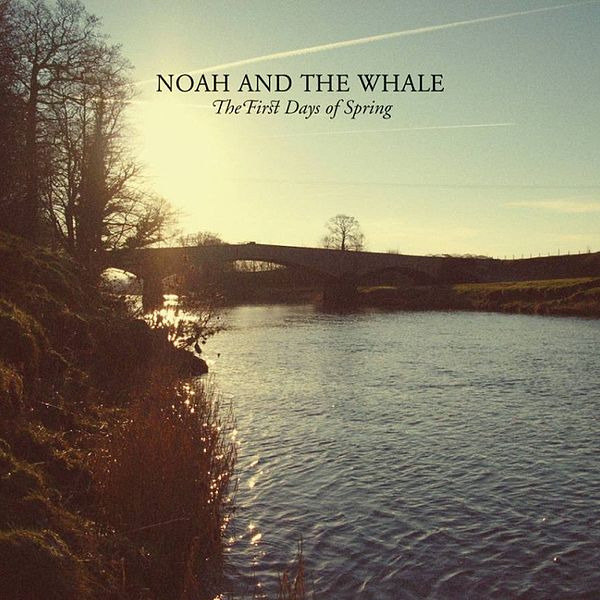Kevin Coleman posted on August 17, 2009 19:00
A review of the album 'The First Days of Spring' by Noah and the Whale

Review Snapshot:
The Twickenham based folk outfit return with a heartfelt second album. It proved a difficult second album, not in music terms but more in the feeling in the theme, which proves thankfully, that Noah and the Whale are here, for a while at least
Cluas Verdict: 8/10
Full review: The first thing to note about “The First Days of Spring” is that Charlie Fink is sole vocalist.The second is that the record is definitely not like the first by the group, and the third is that the theme is not a happy one.The record opens with the title track. A strings intro accompanied by a clean electric guitar hook, immediately sets down the tone for the album. What strikes this reviewer is the incredible similarity between the sound of Fink’s vocals and those of David Kitt. Its no bad thing. The theme of the song is the potential for what should be a new beginning, hounded by a heartfelt break up. “My life is starting over again Well the trees grow, the river flows” he sings with purpose, but in the end of the track he repeats, “I'll come back to you, in a year or so And rebuild ready to become, Oh the person, you believed in or the person that you used to love”. These lines set the theme for the entire record. It's a break up album, or more to the point an album about the disillusionment of a break up.
And so the album continues into “Our Window”. It's a good melody continuing the theme as Fink reminisces and still hankers for “her light”. “My broken heart” is next, again a slow electric guitar intro, with a beating drum, “You can give up anything when your following your heart” Fink sings. There is a nice orchestral string accompaniment to the song. “I’ll be laughing again” he sings defiantly as the sound of a trumpet brings the song up in tone. It’s most definitely the nearest thing to a radio friendly song so far on the album. Like I said, it’s not like the last record.
At the halfway point in the album there is an instrumental interlude. “Instrumental I”, the joyous “Love of Orchestra” and “Instrumental II” provide the affirmation for Fink to come out of his emptiness and despair. Not for long though, “Stranger” opens slowly again with a clean electric guitar intro.“Last night I slept with stranger for the first time since you’ve gone” he sings. It’s back to wallowing and self reflection. The music is slow moving and Finks vocals are soft and easy to listen to. However the over analytical nature of the theme and the self wallow and reflection can be a little overwhelming for the listener. At times the listener can become vexed and feel like telling him to move on! Such is this reviewer’s intolerance of listening to a stranger’s problems!
“Blue Skies” raises the mood a little and is a slow building melody, breaking through to the end with a haunting backing vocal. It’s more positive and finally Fink looks like he is out the gap…It could be a potential single. The layered drum and electric departure on the album is further personified in “Slow Glass”. “I never tried to change you, honey I’m your biggest fan” he sings as he reflects on the hurt his (famous)lost love has caused him. The album closes with “My Door is always Open”. It's the final resolution. “I will only let you only down, but my door is always open” he sings. The country slide guitar and light vocals bring the album to a slow reflective end. “First Days of Spring” has to be listened to in full, and the radio cuts are few are far between. However as an album, it's a story of a bitter break up with some beautiful music for company and well worth a listen. It proved a difficult second album, not in music terms but more in the feeling in the theme, which proves thankfully, that Noah and the Whale are here, for a while at least.
Kevin Coleman
More ...
[Read More...]